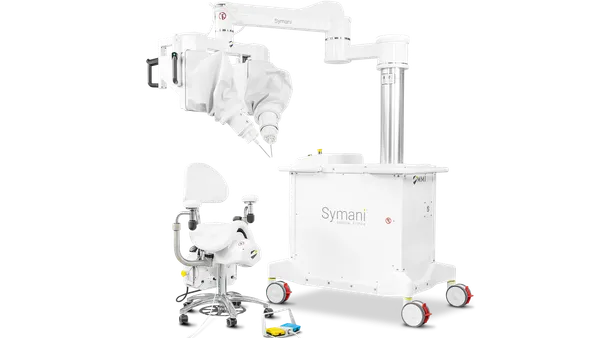Dive Brief:
-
A clinical trial of patients with small coronary vessel lesions has linked Biotronik's Orsiro drug-eluting stent to a lower target revascularization rate than Medtronic's Resolute Integrity.
-
The finding provides evidence to support the theory that stents with "ultrathin" struts are less likely to require repeat revascularization than their slightly thicker rivals.
- While the finding comes with caveats, the data nonetheless boost Biotronik's case as it seeks to grow sales of the recently FDA-approved Orsiro product.
Dive Insight:
Developers of stents have made the struts of their devices increasingly thin to ease delivery and reduce adverse health outcomes associated with abnormal blood flow. The risk of repeat revascularization and other cardiovascular events is particularly high in small coronary arteries. Yet, there is a lack of clinical data showing how ultrathin stents fare in these settings.
To address that evidence gap, researchers performed a prespecified subanalysis of patients enrolled in a study that compared Biotronik's Orsiro, Medtronic's Resolute Integrity and Boston Scientific's Synergy drug-eluting stents. The subanalysis limited the population to around 1,500 patients with small vessel lesions.
From one year of follow up through to the end of the three-year analysis, Biotronik's Orsiro was associated with a statistically lower rate of lesion revascularization than Medtronic's Resolute Integrity. Orsiro is a recently-approved device with ultrathin struts. Resolute Integrity is a previous-generation thin-strut stent that won FDA approval in 2012.
The devices differ in the drugs they elute and the polymers with which they are formed, but it is the role of strut thickness that has attracted the most attention. Writing about the results in an Editor's Note in JAMA Cardiology, Ajay Kirtane and Roxana Mehran framed the study as a notable moment in the assessment of the role of strut thickness in outcomes in small lesions.
"It supports the hypothesis that the comparative contribution of stent strut thickness may be greatest among vessels that are not adequately sized to tolerate thicker-stent struts with the greater degree of intimal hyperplasia that may result from these devices," the physicians wrote.
Biotronik hailed the study as adding to evidence that its Orsiro has "real clinical advantages over second-generation, thicker strut" stents. But the full story may be more nuanced than that claim.
As a subgroup analysis of a larger study, there remains a question about whether the results would be replicated in a trial focused squarely on small lesions. The researchers behind the study cautioned that “no definitive conclusions can be drawn” from the trial as it was powered to generate hypotheses, not conclusively answer questions.
Even if the findings are solid, they only show that Orsiro is better than Resolute Integrity in small lesions. Across the whole study population, which featured around 3,500 patients with lesions of various sizes, the three-year rates of target revascularization in the Orsiro and Resolute Integrity arms were statistically similar.
Biotronik will face competition from more modern devices than Resolute Integrity as it tries to carve out a space for Orsiro. Medtronic offers a thinner-strut stent, Resolute Onyx, that matched Orsiro in a head-to-head clinical trial last year, while companies including Stentys and Palex Medical are working on devices with struts that are almost as thin as those of Biotronik's product.








